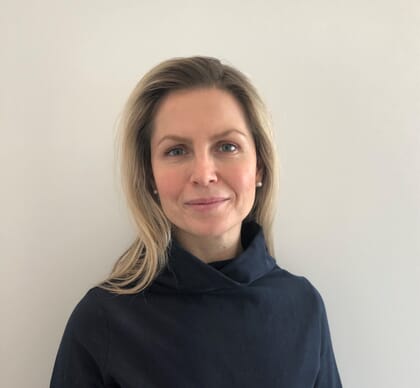The decision to recruit a new MD was taken in light of the company’s planned growth over the next few years, and in collaboration with current incumbent Rune Eriksen. Eriksen will continue as production director as well as retaining responsibility for other key functions.

“We’re delighted Hilde will be joining our leadership team. She is the perfect match to take us to the next level,” said Eriksen. “I’m looking forward to having her experience and competence on board. It’s a winning constellation to secure the company’s success.”
Norcod’s plan to farm cod on an industrial scale has sparked a lot of positive attention – helping it raise 105 million kroner (€10.5 million) in its latest investment round in February.
Storhaug has a bachelor’s degree in aquaculture and is about to complete an MBA from Nord University. Prior to joining seafood and aquaculture data providers Kontali Analyse two years ago she has gained hands-on experience in salmon, halibut and cod farming.
Storhaug says Norcod’s plans are the result of thorough analysis and risk assessment by major shareholder Sirena Group, and she is very much aligned with the approach taken to date.
“Norcod has taken a strong stand regarding sustainability and aims to deliver the planet’s most responsibly produced protein for human consumption. As such it is very well placed to become an industry pioneer and leader,” she said. “The biomass is performing very well and the owners are solid.”
Production-wise Storhaug’s goal is to embed what has already been achieved while searching for new competitive advantages.
“In fish farming, optimising fish performance is everything, from sufficient fry supply and suitable sea sites to premium fish feed. Robust support for the existing strategy reinforces my thoughts entirely,” she said. Investors have indicated they will continue to support the company in future funding rounds.
The company is on track for more milestones in the next three years.
“More sea sites will be stocked with fry, the first harvest is planned for Q3 2021, and we hope to secure more sea locations and licences,” she said. “We have our work cut out!”
Storhaug says biology in a commercial context always holds surprises. “Different batches of fry put to sea will most likely perform differently. By continuously collecting and analysing production data, we will work towards finding the key to predictable growth and reliable prognoses for our marketing and sales division,” she said.
Customised technology solutions and digitalisation will be important in both the short and long term. Storhaug cites as examples providing the sea sites with equipment for biomass control while leveraging digital tools to ensure efficient communication across the organisation to meet management, legal and regulatory requirements.
Norcod has plans to continue to recruit new personnel in line with its production goals. A new sea location is set to be opened shortly.
“It’s also important to establish trust and interaction with local communities where our core business is located. We want to create jobs and help to recruit new talent to the industry by taking on apprentices, for example at our fish farms,” Storhaug said.
Meanwhile, Eriksen says the current Covid-19 crisis will not directly impact the company. “We have taken precautions and made back-up plans to ensure this remains the case,” he said. “We believe securing food production is and will be even more important in the future, and Norcod hopes to play an important role in that endeavour.”


